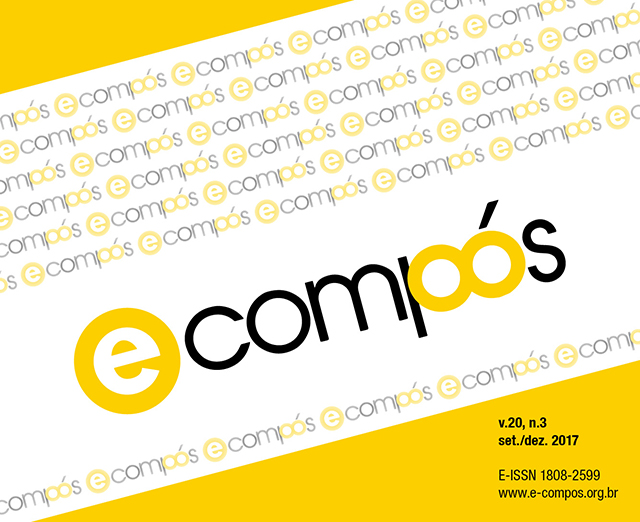Public interest or entertainment: what kind of information the public searches on the internet?
DOI:
https://doi.org/10.30962/ec.1338Keywords:
Portais de notícias. Interesse público. Entretenimento.Abstract
The article presents research results on reader’s preferences of two Brazilian information portals – G1 and UOL – made up from the most accessed articles. The objective is to verify if there is a segmentation trend among the portals, proposing a comparative analysis through 2012, 2013 and 2014. Altogether, 2,637 news items belonging to the “most read” sections of the day were collected. The methodology used is quantitative content analysis and the results indicate that there is segmentation between the portals – while G1 is most sought for news concerning public interest, UOL is accessed for entertainment. On the other hand, despite the fact that segmentation persists over the years surveyed, the interest in news that involves political and social issues has grown.Downloads
Downloads
Additional Files
- Gráfico 1 – Relação entre portais e temas das notícias (Português (Brasil))
- Gráfico 2 – Distribuição de temas por ano no G1 e UOL (Português (Brasil))
- Gráfico 3 – Concentração de temas políticos por ano (Português (Brasil))
- Gráfico 4 – Concentração de temas de interesse público por ano (Português (Brasil))
- Gráfico 5 – Concentração de temas de entretenimento por ano (Português (Brasil))
- Tabela 1 - Percentual de temas hard x soft em cada portal (Português (Brasil))
- Tabela 2 - Segmentação dos portais quanto ao tipo de conteúdo ao longo do tempo (Português (Brasil))
- Tabela 3 - Temas específicos ao longo do tempo (Português (Brasil))
- Carta sobre as alterações (Português (Brasil))
Published
How to Cite
Issue
Section
License
The submission of originals to this journal implies the transfer, by the authors, of the printed and digital publication rights. The copyrights for the published articles belong to the author, with the rights of the journal over the first publication. The authors can only use the same results in other publications, clearly indicating this journal as the source of the original publication. Because we are an open-access journal, the free-of-charge,educational, scientific, and non-commercial use of the papers is allowed, as long as the source is cited.
Authorship
Any person who has effectively participated in the conception of the study, the development of the experimental part, the analysis and interpretation of data and the final wording, is considered as an author. By submitting an article for publication in E-Compós Journal, the author agrees with the following terms: 1. The author keeps the rights on the article, but its publication in the journal automatically implies the full and exclusive disposal of the copyright rights for the first edition, without payment. 2. The ideas and opinions expressed in the article are the sole responsibility of the author, not necessarily reflecting the views of the journal. 3. After the first publication, the author is authorized to take additional contracts, independent of the journal, for the dissemination of the paper by other means (e.g. when publishing in the institutional repository or as a book chapter), provided that the complete citation of the original publication. 4. The author of a published article is allowed and is stimulated to distribute his work online, always with the proper citation of the first edition.
Conflicts of interest and research ethics
If the developed research or the publication of the article may raise doubts as to potential conflicts of interest, the author should declare, in a final note, that no links to funding bodies have been omitted, as well as to commercial or political institutions. Similarly, the institution to which the author is bound should be mentioned, as well as others that may have collaborated in the execution of the study, evidencing that there are no conflicts of interest with the result already presented. It is also necessary to inform that the interviews and experiences involving human beings have obeyed the established ethical procedures for scientific research. The names and addresses informed in this journal will be used exclusively for the services provided by this publication, not made available for other purposes or to third parties. The copyrights belong exclusively to the authors. The licensing rights used by the journal consist in the Creative Commons Attribution 4.0 (CC BY 4.0) license: sharing (copying and distribution of the material in any media or format) and adaptation (remix, transformation and creation of material from licensed content for any purposes, including commercial) are permitted.



